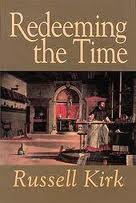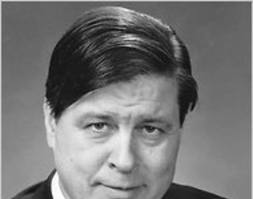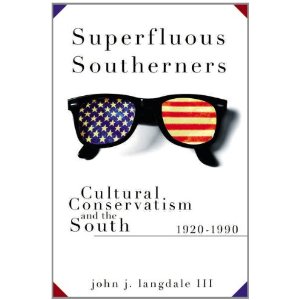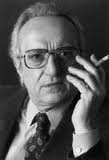
Henri Blocher on God and the Cross

Over the years I have repeatedly benefitted from the theological labors of Henri Blocher. I am thankful for him and his labors. I am having my students read two of his essays on the atonment for a course I teach at Union University. The two essays are "Agnus Victor: The Atonement as Victory and Vicarious Punishment" and "God and the Cross." They are excellent essays, and one, "God and the Cross," is attached.
- Details
- Category: Recommended Reading Recommended Reading
- Published: 09 October 2012 09 October 2012
- Hits: 5267 5267
Political Patience and Christian Hope
I decided I would read this evening (both with my children, and after they went to bed, simply by the fire with a book), rather than watch the first presidential debate. My reasoning is simple: I love what the United States--at its best--stands for, and it is simply too sad to watch what passes for political discourse. At its best the U.S. is a republic with a Constitution. It is a confederation of quasi-independent states who have given limited authority to a federal government. Neither Mitt Romney nor Barack Obama are in the least committed to governing in accord with the charter document--the Constitution--of the United States. So we have a perverse situation: the rule of law is not respected in any meaningful sense by the two candidates representing the two main political parties in the United States. But we should not be too terribly surprised. Throughout history it appears that most people are quite happy to be ruled by tyrants. Even in the biblical period (as seen in 1 Samuel 8) the Israelites wanted to be oppressed by a king. We get the rulers we deserve, it would seem.
As I was reflecting on these things, I noticed a book review of a recent book by Morris Berman, Why America Failed: The Root of Imperial Decline (the review is written by Kirkpatrick Sale, and can be read here). A number of years ago I had purchased Berman's The Twilight of American Culture, and in picking it up this evening I enjoyed re-reading the following from the Introduction:
"[I]f you have finally had it with CNN and Hollywood and John Grisham and New Age 'spirituality,' then pull up a chair, unplug your phone (beeper, TV, fax machine, computer, etc.), and give me a few hours of your time. I promise to do my best not to entertain you" (p. 13).
A nice way to introduce a book on the "twilight of American culture." I note these two books by Berman because they both appear to have a common theme: the twilight, or even worse, the failure of America. If "failure" is taken to mean that America has ceased to be a republic that is ruled by law, then it would seem inescapable: America has failed.
And I raise that issue because if one follows the current political debate, it would seem that for many folks of a more conservative persuasion, it is understood that--as much as Romney may be less than the perfect candidate--good folks need to line up behind "our man". I certainly understand, I think, this line of reasoning. Obama has no interest in constitutional government, in terms of economics he is clearly a fascist, and wants to take money from you and me (by force), in order to fund the killing of unborn children. Fair enough. Perhaps the best thing is simply pull the lever and try to oust Obama. But then things get a tad difficult. Romney gives no evidence of any real understanding of the Constitutuion (or if he does understand it, he is not committed to governing in accord with the Constitution). He may be more committed to economic liberty, but is there any real reason to think that he will govern--even in the realm of economics--in accord with the Constitution? At least he appears to be more pro-life--a very good thing indeed. But at the end of the day, we are dealing with two men who give us no reason to believe they will govern in accord with the rule of law. As I noted in a recent essay, they are both still old-school revolutionaries.
So, when faced with a debate between two such persons, I will likely spend time with my children reading (we are currently finishing the first book in the Lord of the Rings trilogy), and then sit by the fire and read myself. After Berman, perhaps I will pick up a classic, Richard Weaver's Ideas Have Consequences. For some it may seem terribly inappropriate to point to America's decline, or twilight, or even failure. However, it used to be a staple of traditional conservative thought to try and get to the bottom of America's problems (or the West's problems more generally). Indeed, in Weaver's Ideas Have Consequences, the first line of the Introduction reads: "This is another book about the dissolution of the West." He then spends the entire book outlining his understanding of the problem before--in the final three chapters--outlining a suggestion for the "restoration of culture." I do not know if C.S. Lewis ever read Weaver, but Lewis would agree with Weaver on a central point. Lewis once responded to the accusation that one cannot "go back" to the past. Lewis said that if one has taken a wrong turn in the road, the most wise course is to go backward, find the place where you took a wrong turn, and to start heading in the right direction. In an American setting, the way forward will probably entail first going back, and discovering how and when the Constitution began to be abandoned. Neither candidate appears to understand the most basic issues of constitutional government, and is unwilling to truly affirm the basic constitutional framework--a confederated relationship of states who have given limited power to the federal government.
So, perhaps the best thing simply is to read Tolkien to my children--so they will over time not be seduced by Sauron and his minions. And then I may just keep reading Berman and Weaver and other folks who are trying to understand our current situation. And as a Christian I want to soak myself in Holy Scripture, and in the central writings of the Christian faith. It is completely possible that America has failed, although I certainly hope not. If one believes in the resurrection, one has to always believe that it is at least possible that this or that political entity can be renewed and revived, and that any political association can learn how to bow the knee to the risen Jesus (my hats off to Peter Leithart and Oliver O'Donovan). If God can make dead people walk, and if He can make bones come to life, He can certainly do the same thing in our day. He can certainly rule in such a way that we could see a radical transformation of our current situation. To diagnose our twilight or failure is a worthy project. But for the Christian failure is not the final word.
_______________________________
A version of this essay has also been published at The Imaginative Conservative.
- Details
- Category: Recommended Reading Recommended Reading
- Published: 04 October 2012 04 October 2012
- Hits: 5490 5490
Eugene Genovese on Russell Kirk

Historian Eugene Genovese recently passed away. Thus, Genovese and his writings have been on my mind as of late. I noticed that the Imaginative Conservative has re-published a review Genovese wrote of Russell Kirk's Redeeming the Time. The review can be accessed here.
- Details
- Category: Recommended Reading Recommended Reading
- Published: 02 October 2012 02 October 2012
- Hits: 4720 4720
The Late, Great Joe Sobran

Paul Gottfriend alerts reader to a forthcoming book, Joe Sobran: The National Review Years. It appears to be near publication, and should be a treasure of Sobran's writings. I have recommended Sobran elsewhere. He was one of the most gifted writers of his era, and someone will at some point (hopefully) write "the book" on Sobran. He was a wonderful writer. I look forward to this collection of his writings. Gottfried's piece can be read here.
- Details
- Category: Recommended Reading Recommended Reading
- Published: 02 October 2012 02 October 2012
- Hits: 3868 3868
Superfluous Southerners

Congratulations to my friend, Jay Langdale, on his new book, Superfluous Southerners: Cultural Conservatism in the South, 1920-1990, to be published in November, 2012. This promises to be a wonderful book. Here is a summary from the publisher:
In Superfluous Southerners, John J. Langdale III tells the story of traditionalist conservatism and its boundaries in twentieth-century America. Because this time period encompasses both the rise of the modern conservative movement and the demise of southern regional distinctiveness, it affords an ideal setting both for observing the potentiality of American conservatism and for understanding the fate of the traditionalist “man of letters.” Langdale uses the intellectual and literary histories of John Crowe Ransom, Donald Davidson, and Allen Tate—the three principal contributors to the Agrarian manifesto I’ll Take My Stand—and of their three most remarkable intellectual descendants—Cleanth Brooks, Richard Weaver, and Melvin Bradford—to explore these issues.
- Details
- Category: Recommended Reading Recommended Reading
- Published: 01 October 2012 01 October 2012
- Hits: 7464 7464
Eugene Genovese, R.I.P.

Eugene Genovese passed away on September 26, 2012, at 82 years of age. Those who have read him know of his excellent scholarship. I first read his The Southern Front: The Achievements and Limitations of American Conservatism several years ago, and then just recently read his A Consuming Fire: The Fall of the Confederacy in the Mind of the White Christian South. Both were excellent, and I will undoubtedly return to them over time. For students (and others!) interested in learning and reading, it is essential to read folks like Genovese: persons willing to take on this or that orthodoxy, and to question (at least some of!) the received wisdom. Paul Gottfried reflects on his life and work here.
- Details
- Category: Recommended Reading Recommended Reading
- Published: 28 September 2012 28 September 2012
- Hits: 4164 4164